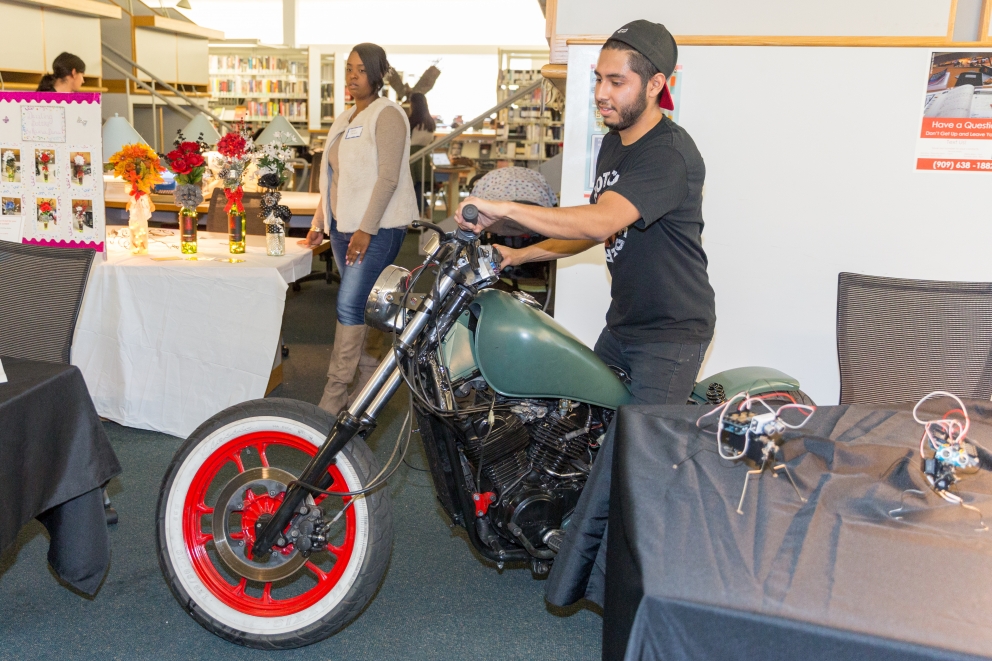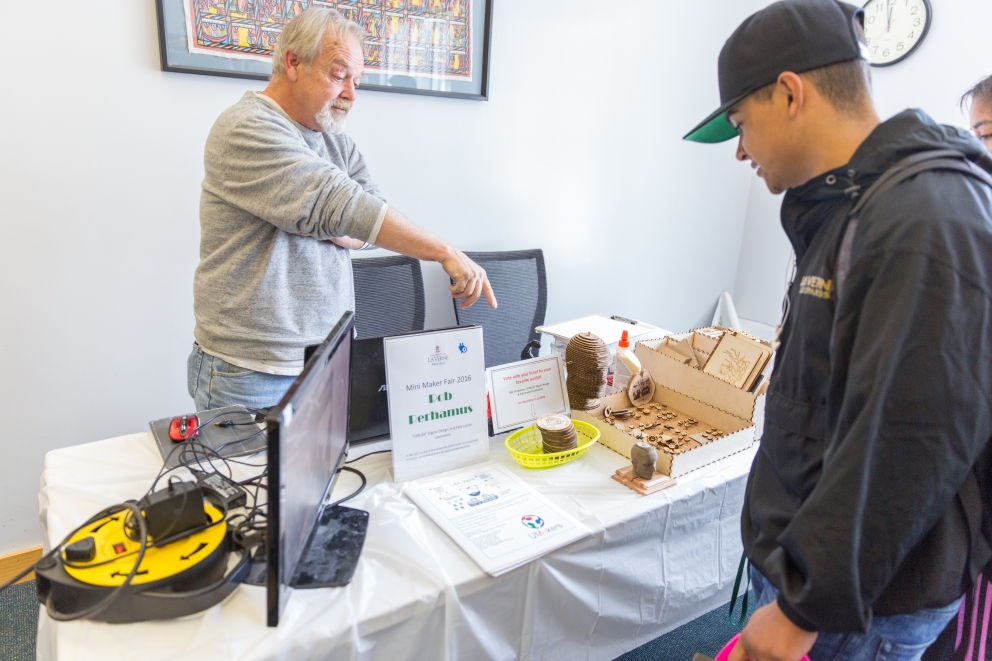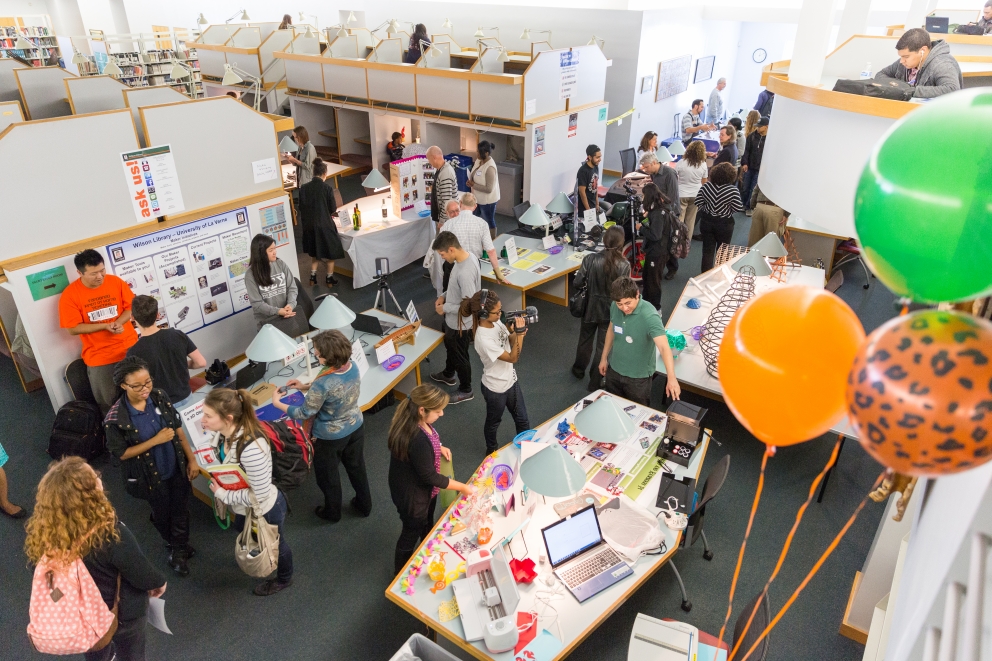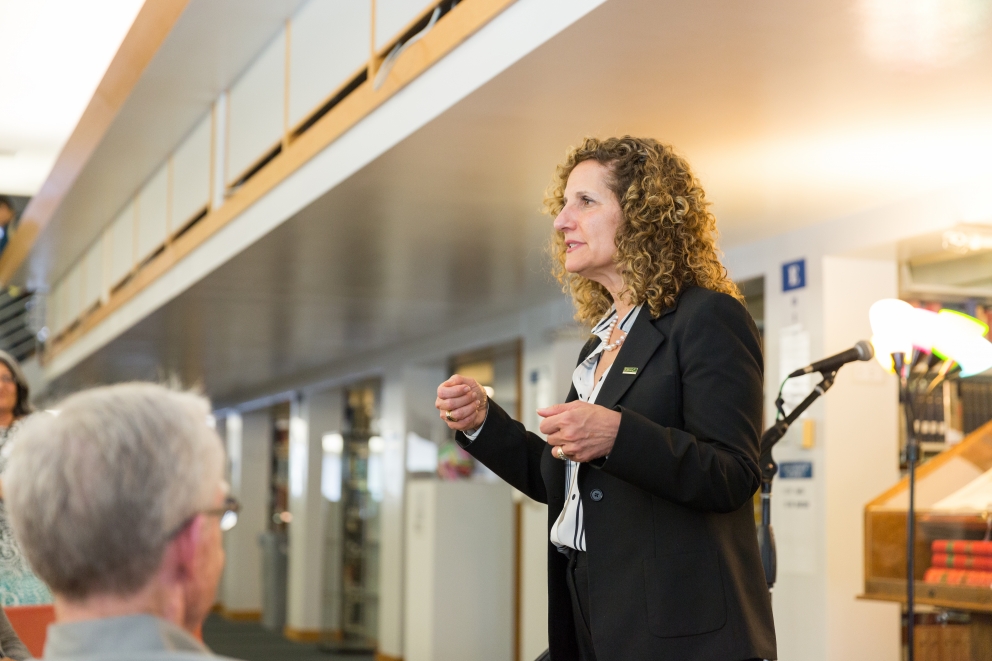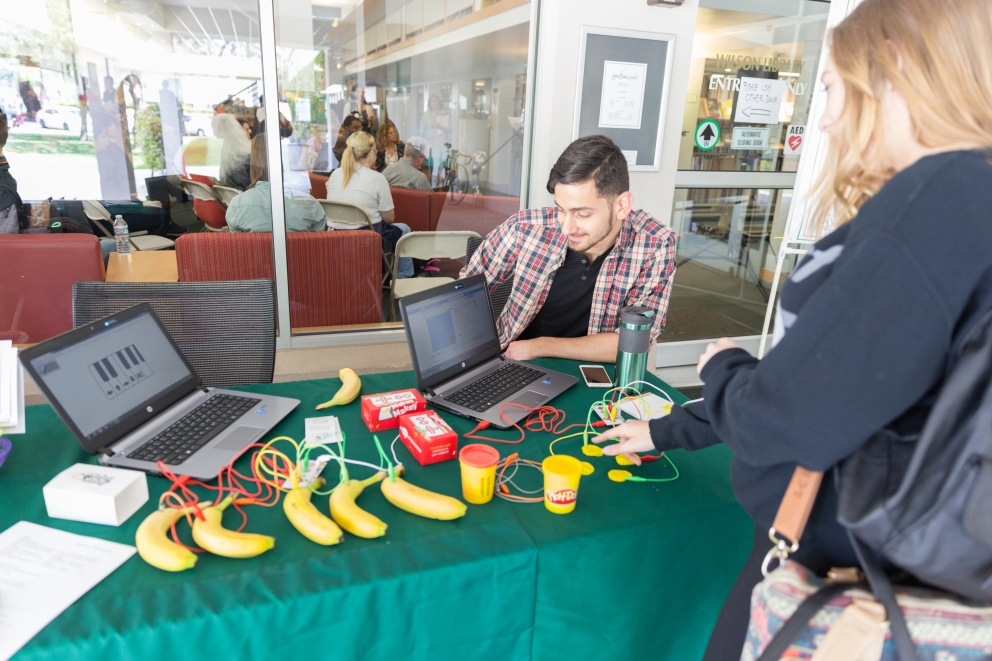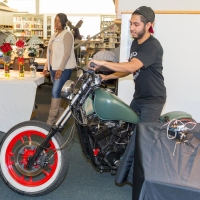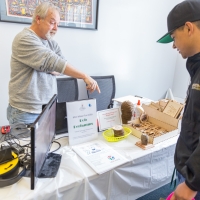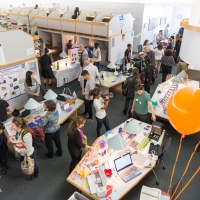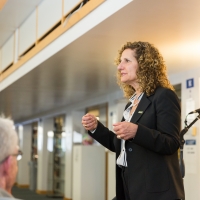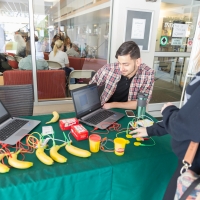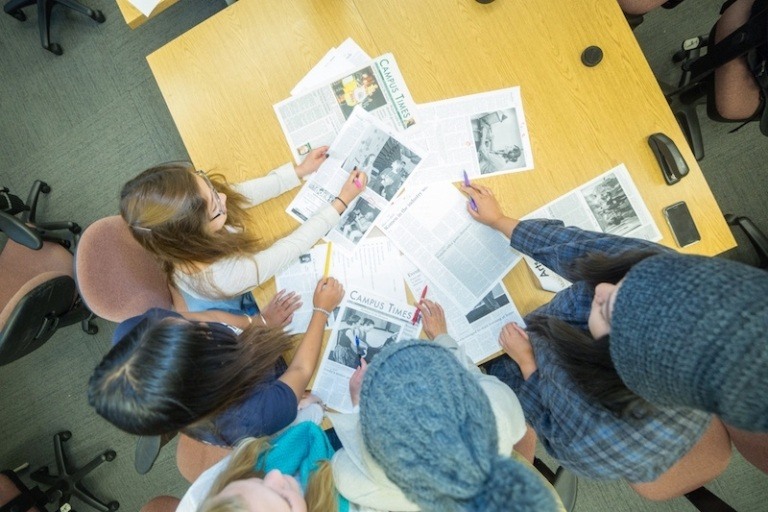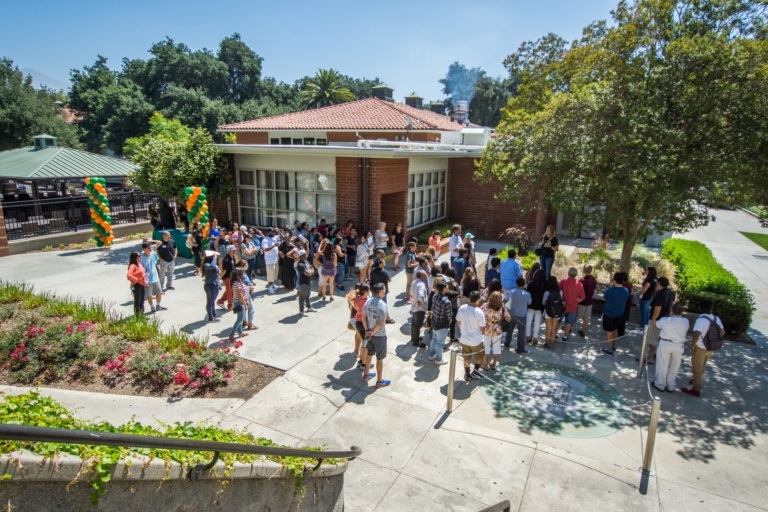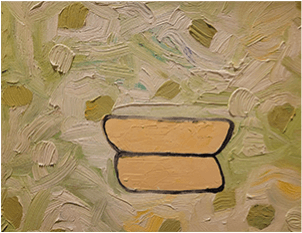Mini Maker Fair Unveiled During Scholastic & Artistic Works Week
The video game console, Commodore 64, took the U.S. by storm more than a decade before student Koppany Horvath was even born.
But instead of using it to play games like Boulder Dash and Prince of Persia, Horvath uses it for a different purpose: making it command a modern personal computer to access the Internet and perform tasks such as update a Twitter status.
“I have a general interest in retro computing, digital communications, and just computer science in general,” the first-year University of La Verne freshman said.
His project was one of about two dozen entered into the University of La Verne’s inaugural “Mini Maker Fair” at Wilson Library on April 11. The Maker Fair served as a kick-off for Scholastic & Artistic Works Week, which included Research Day, Student Artistic Festival Day and Book Day. The week wrapped up with a presentation on funding scholarly and artistic projects called “Show Me the Money.”
The Maker Movement describes the growing trend of people choosing to build their own technology products, art, crafts or other items rather than relying on consumerism. President Barack Obama in June 2014 hosted a maker fair at the White House and invited people of all ages to hold similar events to celebrate ingenuity.
University Librarian Vinaya Tripuraneni said the idea for hosting a fair came from the popularity of the library’s 3-D printer, which has been used to print everything from cell phone cases to fossils.
They University’s Maker Fair projects encompassed a variety of electronics, crafts, jewelry and even a fully-rebuilt motorcycle.
Kern County campus’ Bakersfield Robotics group sought a way to repurpose coat hangers. With a bit of cutting and bending, and the addition of circuit boards, wires and other materials, the group was able to create “Bug Bots.” The bots have “ultrasonic eyes,” which look like eyes, but actually function more like ears because they detect sound, causing the robot to react.
Raina Dana, a Master of Leadership and Management major who is set to graduate in May, presented “Dazzling Bottles,” a collection of recycled wine, water and beer bottles repurposed as centerpieces and for other decorative purposes. The San Bernardino County preschool teacher gives them to family members as gifts, but she hopes her creations can one day turn a profit.
“If I could turn this into a business, that would be wonderful,” she said.
Assistant Professor of Education Dr. Andy Steck applauded the addition of a Maker Fair at the University, and said he hopes to add a “maker space” to the curriculum lab at Barkely Annex. One aspect he liked about the event is that not all entries were curriculum related, with some projects coming from the personal lives of participants.
“I think that’s really important in developing the whole student and the whole person,” Steck said.
Students competed in a “Shark Tank”-style event where they pitched their product to a panel of judges for a chance at cash prizes.
Andrew Okimura and Harry Bennett won both cash and supplies for their “Bactograph” project, in which a picture placed over bacteria reflects an identical image in a Petri dish. Garrett Curran won for his presentation on “LeoVision,” the base of a business consulting class.
Research Day took place in Campus Center, where faculty, students and staff presented poster board, PowerPoint and video presentations on their research. It is a chance for faculty to share with their colleagues the work they have been doing, and students to display their senior projects.
For senior chemistry major Katherine Bay, it was her last opportunity as an undergraduate to participate in Research Day because she graduating in May. She and the Chemistry Department presented her project “An Approach to Photoreduction of CO2 to Fuels using Quantum Dot and Organic Triradical.”
“Our research was inspired by global warming and the increase in CO2 emission,” she said.
Bay says she brought knowledge gained from working with the U.S. Department of Energy and Caltech to the project. She will be researching at the University of Cambridge during the summer and attending UCLA in the fall.
“I am very thankful for the education I received from the University of La Verne and I would not be here today without the support of all of the faculty members,” she said. “I am excited for what the future will bring and I’ll always have Leo pride wherever I go.”
